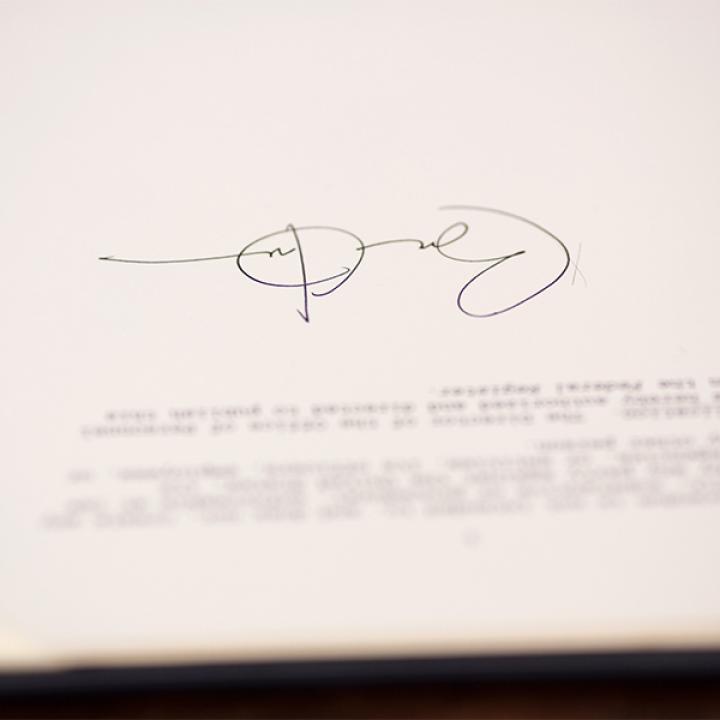

As the clock counts down to implementation, Washington needs to move quickly to correct the agreement's flaws and close its loopholes.
Remember the Iran nuclear agreement? Two months ago, it was the talk of the town. Then, like the national obsession with the Chandra Levy murder that faded away the moment al-Qaeda crashed airplanes into the Twin Towers, it vanished virtually overnight -- no more headlines, no more op-eds, no more talk shows. The big difference is that the open questions surrounding the Iran deal remain matters of strategic importance.
Indeed, as the clock ticks toward implementation of the nuclear agreement, the task of clarifying issues of enforcement, deterrence, and U.S. regional policy is more urgent than ever. This is not least because Iran's actions since the deal's approval suggest Tehran views the accord not as the pathway to responsible regional behavior but as a license to expand influence, fuel instability, and make trouble for America and its local allies.
While next week's visit to Washington by Israeli Prime Minister Benjamin Netanyahu may be an opportunity to bring to a close an especially bitter chapter in U.S.-Israel relations, it might also herald -- if only briefly -- a return to center stage of policy debate on aspects of the Iran nuclear agreement (formally known as the Joint Comprehensive Plan of Action, or JCPOA). One way to organize these issues is to take a closer look at the President's little-examined correspondence with key legislators on the Iran deal.
During the course of the Iran debate, President Obama met with dozens of Senators and Representatives, often in one-on-one meetings. Few details of these or other White House meetings with concerned legislators have emerged, though stories circulate about the hardball politics that kept all but four Democrats in the Senate and 25 in the House from flouting party discipline and voting to disapprove the Iran agreement. (Technically, no actual Senate vote was taken on the deal itself; the closest was a cloture vote that failed.) Along the way, the President deemed it necessary (or at least politically expedient) to respond to at least three Democratic legislators -- New York Congressman Jerrold Nadler (August 20); Delaware Senator Chris Coons (September 1); and Oregon Senator Ron Wyden (September 7) -- with detailed written responses to questions and concerns.
The most noteworthy aspect of these three letters is what they do not include -- namely, any specific commitments beyond the letter of the Iran deal text. While virtually every substantive critique of, or proposed improvement to, the Iran deal is addressed in these letters, each one was summarily dismissed or sidestepped through language that has the whiff of resolve without actually making any specific commitments beyond the narrow wording of the JCPOA text.
This, by itself, is not surprising; the goal of the correspondence was to secure legislators' support without paying for it in the coin of policy concession. But the arguments the President chose to make -- or, in some cases, not to make -- and the differences among the letters offer some revealing insight into the Administration's approach on key issues...
To read the full article, download the PDF.
Robert Satloff is executive director of The Washington Institute. This article was originally published on the American Interest website.
American Interest




